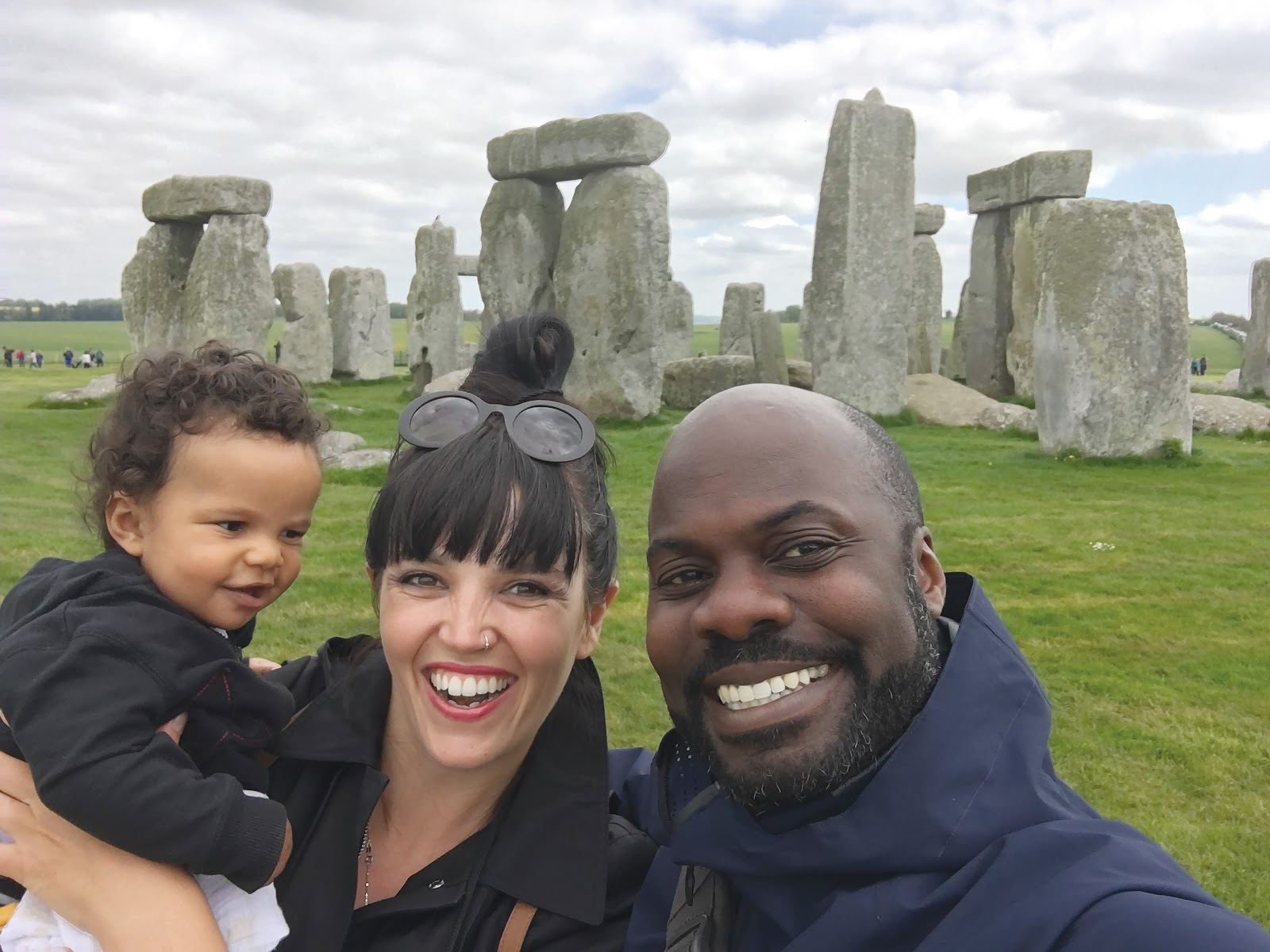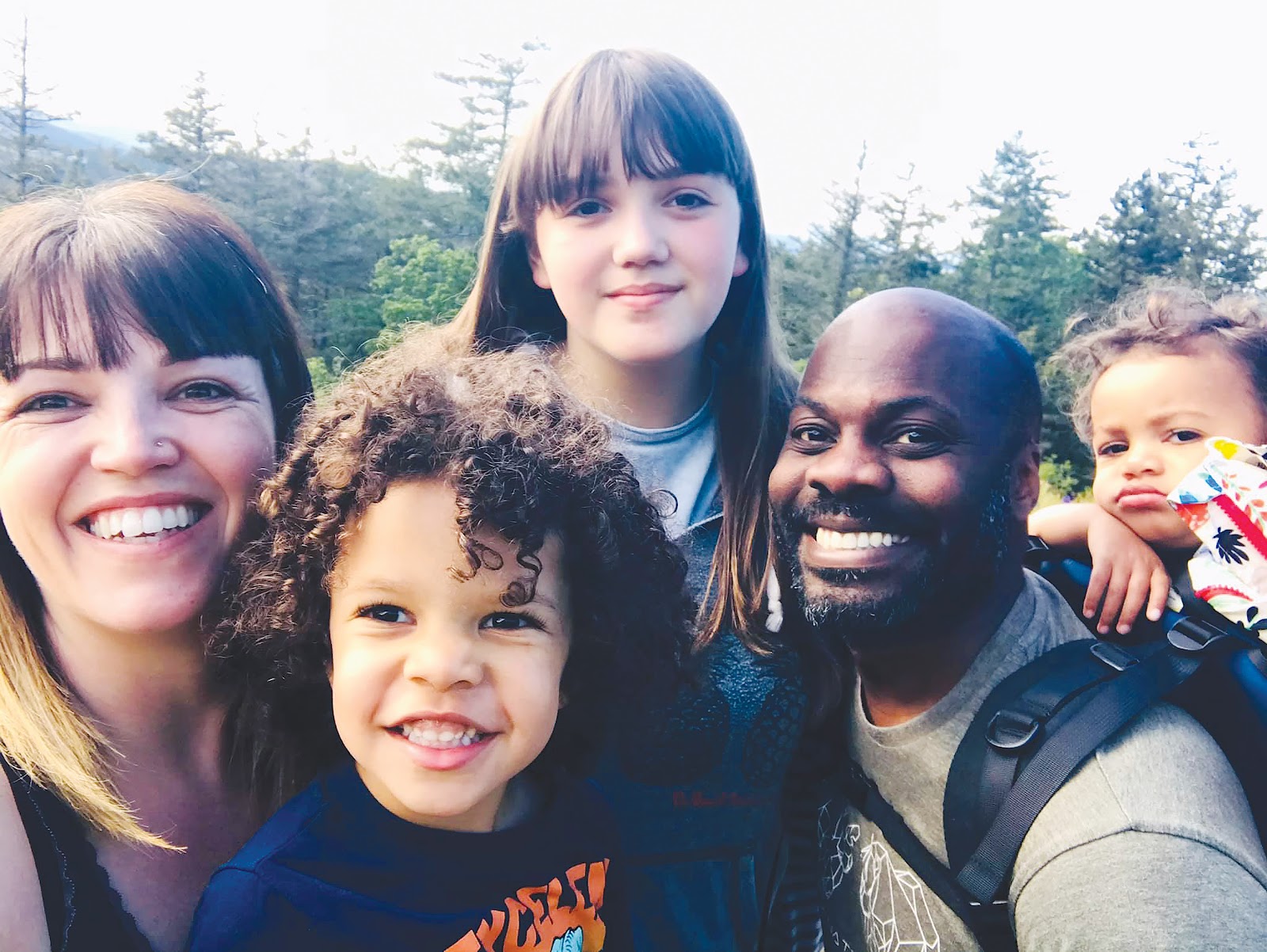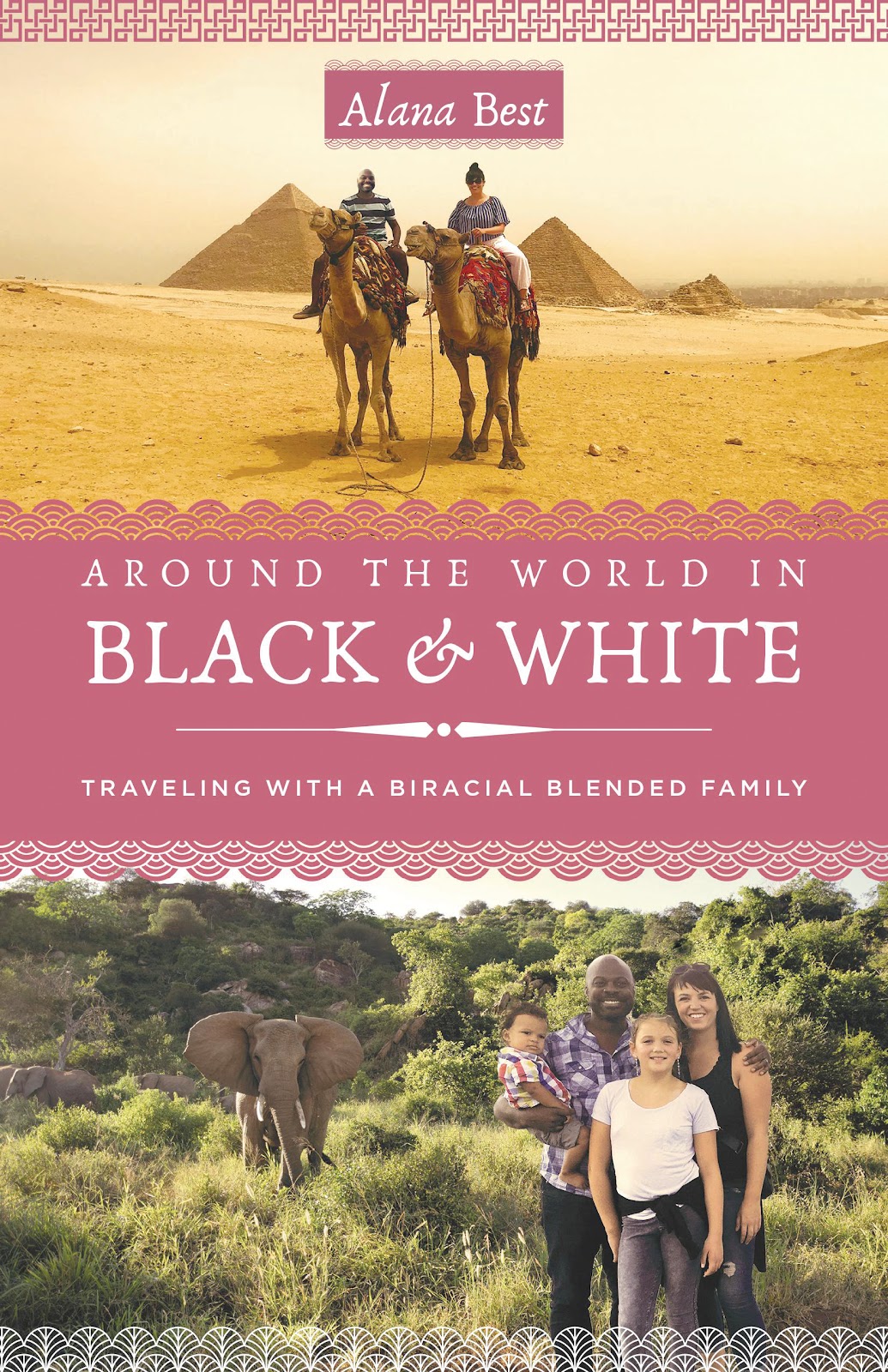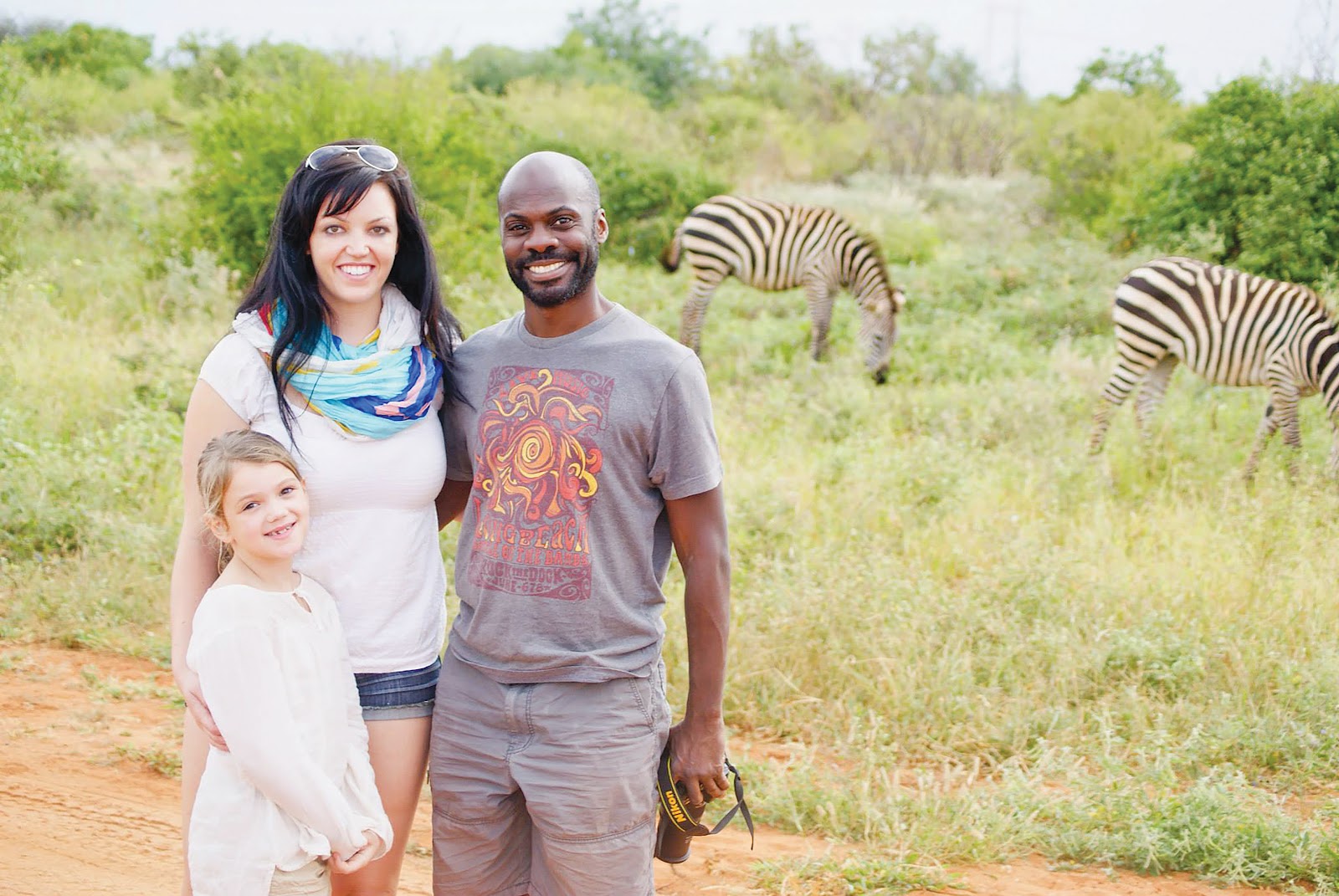About halfway into Around the World: Traveling with a Biracial Blended Family, a newly released travelogue by Alana Best, readers find the author and her husband breathing a sigh of relief. They are a mixed-race couple—the author is white and her Canadian husband, Roland, is Black—that has already traversed more than a dozen countries, quietly suffering racial indignities big and small along the way. All that, with their infant son and 10-year-old daughter in tow.
Now, as they stroll through an art museum in London, the couple can feel the weight of the world lifting from their shoulders: “I love the diversity here,” Roland says, at one point. “There are a lot of Black professionals.”

Best observes how it’s nice to not feel on display here. “There were countless moments in Asia and Egypt where people would be watching me and I would think ‘I hope I’m representing women well, or inter-racial couples well, and I really hope I’m representing Canada well,’” she writes. “As if their judgments of an entire segment of the population or an entire country could be based on that one interaction with me is kind of a lot of pressure.”
The Bests are not alone. Over the next year, Black U.S. leisure travelers will spend upwards of $1 billion globe-trotting. Experiences like the Bests’—chronicled in books, articles, and film—reflect the rocky terrain that mixed-race couples, families, and single travelers face as they trek across a world steeped in racial biases and stereotypes.
“Racist encounters recounted throughout the Bests’ travels reveal the global reach of the legacy of colonization, African enslavement, and the ideology of white supremacy,” writes June Francis in the book’s foreword.
As Francis, director of the Institute for Diaspora Research and Engagement at Simon Frazier University in Toronto, puts it: “One might expect that places that have experienced the ravishes of colonization would be places of refuge for Black travelers; instead, the ways in which colonization co-opted various groups as part of its project have meant that anti-Black racism is a global phenomenon, one this couple and their children could not escape.”
Sadly, the experiences Best shares in Around the World—and the angst of biracial American travelers’ generally—are largely unsurprising.
After all, we know how Black Americans feel treated on home soil; to imagine similar traumas playing out against, say, the Great Wall of China isn’t so difficult.
We know how Black Americans feel treated on home soil; to imagine similar traumas [abroad] isn’t so difficult.

Changing perceptions
Still, it’s a heady moment for multicultural American travelers, and Best is not alone in exploring it.
As the United States heaves in racial discord, the chronicles of mixed-race couples and blended families traveling abroad prove a powerful, and timely, antidote, from The Colors of Love: Multiracial People in Interracial Relationships by Melinda A Mills (2021), to last year’s Mixed Up: Confessions of an Interracial Couple by Tineka Smith and Alex Court.
If Black travelers have entered a Gilded Age of stamped passports and artistic expression on matters of race and identity across borders, we have such pioneering Black intellectuals such as Ida B. Wells, Ethel Payne, and Booker T. Washington to thank for seeding the genre. DETOUR’s digital chief, Jonathan Allen, a mixed-race British-Sri Lankan immigrant living in America, has spent the past couple of years studying how these early scribes not only changed their view of themselves through travel but the world’s perception of Black people.
The foremost historical founders of the Black Press—Frederick Douglass, W.E.B. DuBois, Booker T. Washington, Ida B. Wells, and Ethel Payne—all traveled abroad, Allen notes. “Not only was travel common to all, but the personal motivations of each was galvanized and strengthened by their experiences abroad, particularly in Europe.”
He adds: “It’s the heroes of the Black Press that teach me how to reckon with a dichotomy of two great loves at the core of my being—the love for my home and the love for my people—and recognize that they may never find solace in each other.”

Growing diversity
Ultimately, Around the World finds a measure of solace. Alana and Roland encounter more heroes than villains. As a travelogue, the narrative moves at a lively and entertaining pace, even as some passages reveal Best’s own epiphanies.
“I have seen movies, read books, and watched the news. I know racism exists in the world, but I have been naive to the realities of it,” she confesses at one point. “I assumed most people think like I do. I thought racism toward Black people was an issue largely concentrated in the United States, specifically in the South.”
She also recounts Roland giving what reads like a public service announcement to a group of kindergarteners boisterously laughing at his dark skin. “You should know the shade of someone’s skin isn’t a value scale,” he tells them. “Do you realize that when you treat a person like this you’re reinforcing that the further away someone’s skin color is from white, the less valued they are? That includes you! It’s not okay . . . it’s deeply hurtful. And it damages our entire society.”
To her credit, Best tackles as best she can her personal challenges as narrator. As she writes in the preface: “The language, stories, and thoughts accounted are uncensored to provide as raw and realistic account as possible. This includes the use of the N-word, which I have chosen not to write in its full form as I do not feel appropriate for a white person to ever do. I acknowledge that this book is written through a white woman’s eyes, which includes all the biased and privileged perspective this entails.”
The number of non-Hispanic Americans who identify as multiracial has soared by 127%.
At its heart, Around the World is full of courage, humanity, and good humor. It also goes far in setting the stage for a world—and country—increasingly aswirl with people of color. Over the past decade, the number of non-Hispanic Americans who identify as multiracial has soared by 127%, according to the U.S. Census Bureau. “Part of the rise in people identifying as multiracial was simply the growing diversity of the American population,” explained a New York Times article about the spike, which showed the number of Americans who identified as non-Hispanic and more than one race jumped to 13.5 million from 6 million.
The world is fast changing, and, by the end of her journey, Best has stumbled across perhaps the Holy Grail of travelers worldwide. “We discovered greater depths of inner strength, and I awoke to my own prejudices,” she writes. “We shared breathtaking experiences and quality time, and were reminded… that time is not guaranteed. We will not always have these beautiful days to share with each other.”

Worldly Wise
A tip sheet for interracial travelers, inspired by a wave of new books, articles, and scholarly research.
1. Staring comes with the territory.
It may seem rude or downright offensive, but ogling Black tourists is common in certain countries.
2. Keep family and friends updated where you are.
The threat of aggression and violence against tourists is real. Stay connected to home.
3. Be willing to forgive.
Don’t let simple cultural ignorance derail an opportunity for enlightenment or friendship.
4. Face it, some places are friendlier than others.
Try Paris, Brazil, Monaco, or Brooklyn. Chances are, you’ll be happy.
5. You’re not in this alone.
Ron Stodghill, the founder of DETOUR (www.detourxp.com), is an award-winning journalist and professor at the Missouri School of Journalism.


